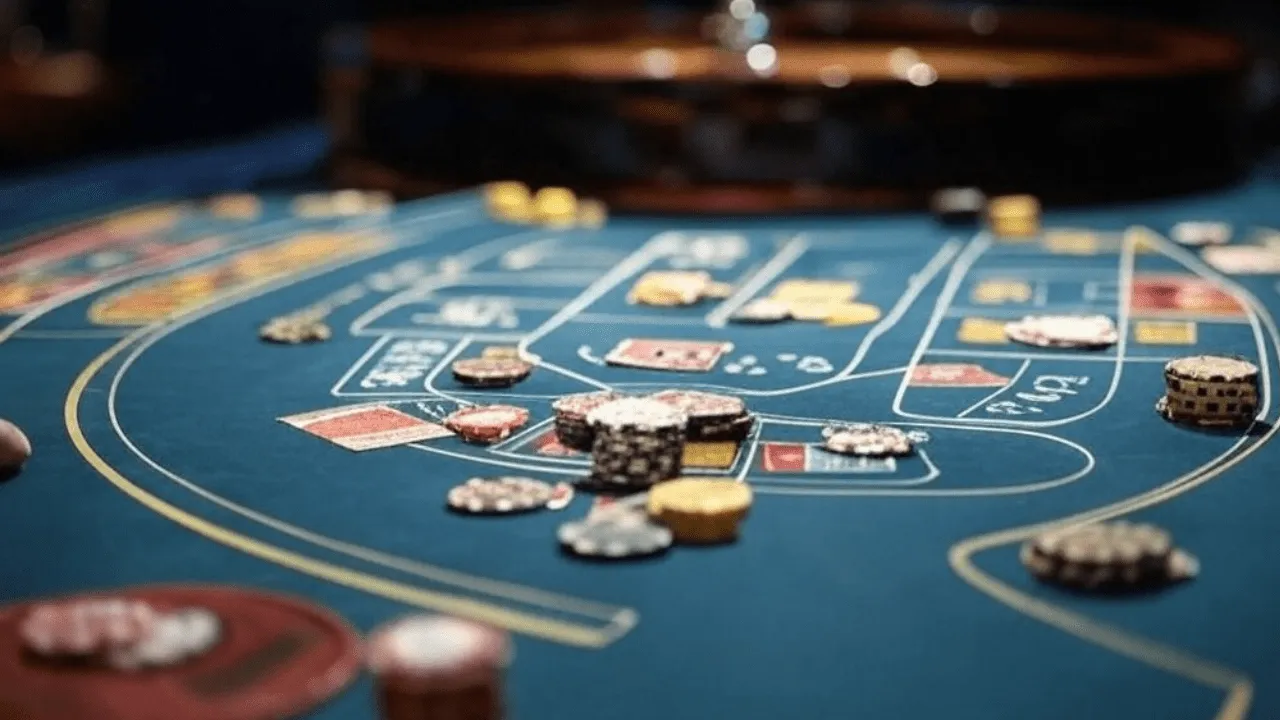Learn how card counting works, its risks, and its relevance in online games. Discover whether this blackjack strategy is still effective in the digital age.
Card Counting Explained: Is It Worth the Risk for Online Games?
When it comes to mastering table games, few strategies spark as much fascination and controversy as card counting. Immortalized in films, documentaries, and gaming folklore, this technique has long been associated with clever minds beating the odds at the blackjack table. But with the rise of online games, many players wonder: is card counting still relevant, or is it just a relic of the casino era?
In this aw8 pro article, we’ll dive deep into the origins of card counting, how it works, whether it can be applied to online environments, and most importantly, whether it’s worth the risk in today’s gaming world.
What Is Card Counting?
Card counting is a strategy used primarily in blackjack to determine whether the next hand is likely to give an advantage to the player or the dealer. By keeping track of the ratio of high cards (10s, face cards, Aces) to low cards (2–6) that remain in the deck, players attempt to make better decisions on when to bet big or small.
The Basic Concept
- Low cards benefit the dealer.
- High cards benefit the player.
- By assigning values (+1, 0, -1) to each card, players can maintain a running count.
- A positive count signals that more high cards remain in the deck—good for the player.
- A negative count indicates a deck rich in low cards—advantage dealer.
The most common system is the Hi-Lo Count, which is relatively simple yet effective when mastered.
The History of Card Counting
Card counting dates back to the 1960s when mathematician Edward O. Thorp introduced it in his book Beat the Dealer. This marked a revolution in gambling, turning blackjack from a game of pure chance to one of strategic advantage—at least theoretically.
Thorp’s system was based on math and probability, showing that under specific conditions, a player could gain a slight edge over the house.
From there, card counting evolved:
- MIT Blackjack Team: Famously used advanced counting systems and team strategies to win millions from casinos.
- Hollywood Culture: Films like 21 and Rain Man brought the concept into mainstream awareness.
- Casino Crackdown: Surveillance, automatic shuffling machines, and countermeasures were introduced to stop professional counters.
How Card Counting Works in Practice
Step-by-Step Breakdown
- Assign values to cards
- 2 to 6 = +1
- 7 to 9 = 0
- 10, J, Q, K, A = -1
- Keep a running count
Update the total based on each card seen at the table. - Convert to a true count
Divide the running count by the number of decks remaining. This helps adjust for games with multiple decks. - Adjust bets and strategy
- High true count? Increase your bet.
- Low or negative true count? Decrease your bet or sit out hands.
Challenges in a Real Casino
- Keeping the count without drawing attention
- Dealing with fatigue during long sessions
- Adapting to rule variations and house shuffles
Can You Count Cards in Online Games?
Here’s where things get tricky. In the era of online games, card counting faces a serious obstacle: shuffling algorithms.
Traditional Online Blackjack
Most online blackjack games use random number generators (RNGs) and shuffle after every hand. That means:
- No way to track card history
- No advantage to counting
- Strategy resets with each hand
Live Dealer Blackjack
However, live dealer blackjack offers a slightly different opportunity:
- Real decks are used and shuffled by a human dealer
- Shoes may contain multiple decks and aren’t always reshuffled after every hand
- Visual confirmation of dealt cards is possible
Still, the majority of platforms limit this advantage by:
- Using continuous shuffling machines (CSMs)
- Frequently reshuffling
- Monitoring suspicious betting patterns
So, while live dealer games might offer limited opportunities, traditional RNG-based online games effectively eliminate any edge card counting provides.
Is Card Counting Legal?
The Short Answer: Yes, but…
Card counting is not illegal—you’re simply using your brain to analyze available information. However, casinos are private businesses, and they reserve the right to refuse service.
If a player is caught:
- They can be asked to leave
- They may be banned permanently
- Their winnings may be limited or scrutinized
In online games, accounts suspected of using software to count cards may face suspension or restrictions. Some platforms implement anti-fraud algorithms to detect patterns consistent with advanced play.
Risk vs Reward: Is It Worth It?
Pros of Card Counting
- Mathematical Edge: In live games without frequent shuffling, players can gain a 0.5–1.5% edge.
- No Cheating Involved: It’s purely mental strategy.
- Discipline Training: Card counters often develop better bankroll and risk management skills.
Cons of Card Counting
- Limited Application in Online Games: RNG-based games eliminate its usefulness.
- High Skill Barrier: Mastering counting under pressure takes time and effort.
- Casino Pushback: Most counters are caught eventually and banned.
- Emotional Stress: Long-term counting can be mentally exhausting and may not lead to significant profits.
Alternatives to Card Counting in Online Games
For players interested in improving their odds in online games, there are better and safer strategies:
- Basic Blackjack Strategy: Learn the statistically optimal decisions for every hand.
- Game Selection: Choose games with favorable rules (e.g., fewer decks, dealer stands on soft 17).
- Betting Systems: Use flat betting or low-risk progression systems responsibly.
- Practice Modes: Many platforms offer free-play tables to build confidence and strategy.
These approaches offer consistent play without the added risks of being flagged or banned.
The Psychology Behind Card Counting
Interestingly, card counting isn’t just about math—it taps into the psychological aspect of gaming.
- Focus & Memory: Counters train their short-term memory and focus under pressure.
- Emotional Control: Avoiding tilt (emotional decision-making) is crucial.
- Risk Assessment: Understanding when to push your edge or back off makes a big difference.
These mental tools are valuable not only in blackjack but in many other online games that involve skill and decision-making.
Conclusion
Card counting remains one of the most legendary strategies in gambling history. But in today’s digital world, its practical application is far more limited. For most online players, especially in RNG-based platforms, it’s not worth the risk or the effort.
However, for those exploring live dealer online games, there may be small windows of opportunity—but only with practice, precision, and discretion.
For most players, focusing on strong fundamentals, smart bankroll management, and understanding the structure of the game is a far more reliable path to success.
If you love the thrill of strategic play and the evolution of gaming tactics, support the growing league of online table game enthusiasts. Dive deeper into the world of online games where skill meets chance, and every decision counts.


